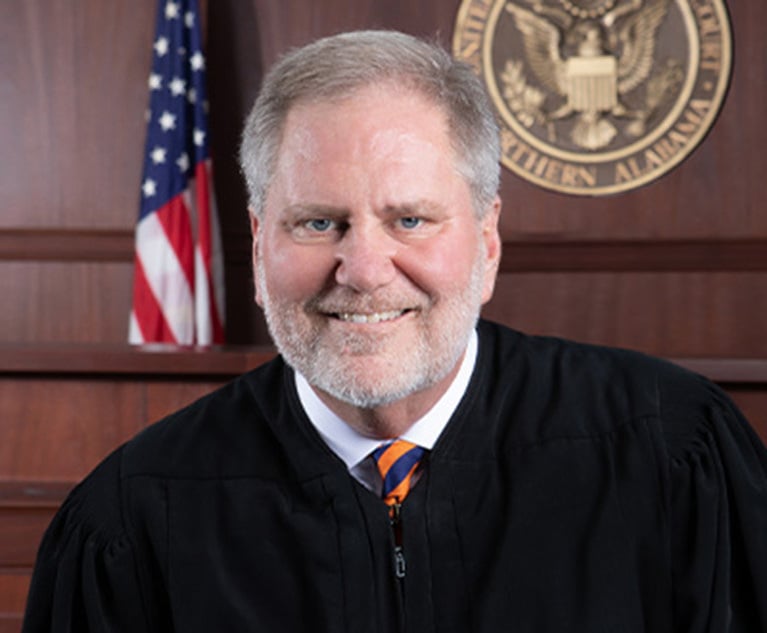 Demetri Economou of Kane Russell Coleman Logan. Courtesy photo
Demetri Economou of Kane Russell Coleman Logan. Courtesy photo Texas Suspense Accounts 1 Year After 'Freeport'
"'Freeport' is ... a substantially important decision concerning two of the safe harbor provisions in ... the Texas Natural Resources Code," writes Demetri J. Economou of Kane Russell Coleman Logan.
July 23, 2024 at 10:00 AM
6 minute read
In a year dominated by the landmark cases Devon v. Sheppard and Van Dyke v. Navigator, the Texas Supreme Court's 2023 decision in Freeport-McMoRan Oil & Gas v. 1776 Energy Partners may tend to be overlooked. (Freeport-McMoRan Oil & Gas v. 1776 Energy Partners, 672 S.W.3d 391 (Tex. 2023).)
Freeport is, however, a substantially important decision concerning two of the safe harbor provisions in chapter 91.402 of the Texas Natural Resources Code. Those allow the payment of proceeds to be withheld, i.e., placed in suspense, without interest when there is:
- A dispute concerning title that would affect distribution of payments.
- A reasonable doubt that the payee … has clear title to the interest in the proceeds of production.
The facts of the Freeport case can be boiled down as follows:
- Ovintiv and 1776 were parties to joint operating agreements in Karnes County which required payment of proceeds from Ovintiv to 1776, with 1776 being billed by Ovintiv for its proportionate share of operating expenses.
- Separate to this relationship but covering the same assets, 1776 was sued by Longview Energy Company, alleging that two Longview directors acquired assets for 1776 when their fiduciary duties instead required them to acquire those assets for Longview.
- Longview won its lawsuit and the 1776 assets at issue were placed in a constructive trust.
- Once Ovintiv learned of the Longview judgment and the apparent question over 1776's entitlement to proceeds under the Ovintiv-1776 JOAs, Ovintiv placed 1776's proceeds under the JOA in suspense.
1776 appealed the Longview judgment and ultimately won a reversal at the court of appeals, which was affirmed by the Texas Supreme Court. Ovintiv subsequently paid over the contents of the suspense account to 1776 without interest. 1776 claimed it was entitled to interest on these amounts because Ovintiv was not operating within section 91.402's safe harbors. 1776 lost this claim at the trial court and again at the Supreme Court.
This content has been archived. It is available through our partners, LexisNexis® and Bloomberg Law.
To view this content, please continue to their sites.
Not a Lexis Subscriber?
Subscribe Now
Not a Bloomberg Law Subscriber?
Subscribe Now
NOT FOR REPRINT
© 2025 ALM Global, LLC, All Rights Reserved. Request academic re-use from www.copyright.com. All other uses, submit a request to [email protected]. For more information visit Asset & Logo Licensing.
You Might Like
View All
A Judge Ordered Squabbling Lawyers to Have Lunch: Here's What Happened

Reimbursement Claims in Divorce Cases for Capital Contributions to Business Entities
11 minute read

Law Firms Mentioned
Trending Stories
- 1Uber Files RICO Suit Against Plaintiff-Side Firms Alleging Fraudulent Injury Claims
- 2The Law Firm Disrupted: Scrutinizing the Elephant More Than the Mouse
- 3Inherent Diminished Value Damages Unavailable to 3rd-Party Claimants, Court Says
- 4Pa. Defense Firm Sued by Client Over Ex-Eagles Player's $43.5M Med Mal Win
- 5Losses Mount at Morris Manning, but Departing Ex-Chair Stays Bullish About His Old Firm's Future
Who Got The Work
J. Brugh Lower of Gibbons has entered an appearance for industrial equipment supplier Devco Corporation in a pending trademark infringement lawsuit. The suit, accusing the defendant of selling knock-off Graco products, was filed Dec. 18 in New Jersey District Court by Rivkin Radler on behalf of Graco Inc. and Graco Minnesota. The case, assigned to U.S. District Judge Zahid N. Quraishi, is 3:24-cv-11294, Graco Inc. et al v. Devco Corporation.
Who Got The Work
Rebecca Maller-Stein and Kent A. Yalowitz of Arnold & Porter Kaye Scholer have entered their appearances for Hanaco Venture Capital and its executives, Lior Prosor and David Frankel, in a pending securities lawsuit. The action, filed on Dec. 24 in New York Southern District Court by Zell, Aron & Co. on behalf of Goldeneye Advisors, accuses the defendants of negligently and fraudulently managing the plaintiff's $1 million investment. The case, assigned to U.S. District Judge Vernon S. Broderick, is 1:24-cv-09918, Goldeneye Advisors, LLC v. Hanaco Venture Capital, Ltd. et al.
Who Got The Work
Attorneys from A&O Shearman has stepped in as defense counsel for Toronto-Dominion Bank and other defendants in a pending securities class action. The suit, filed Dec. 11 in New York Southern District Court by Bleichmar Fonti & Auld, accuses the defendants of concealing the bank's 'pervasive' deficiencies in regards to its compliance with the Bank Secrecy Act and the quality of its anti-money laundering controls. The case, assigned to U.S. District Judge Arun Subramanian, is 1:24-cv-09445, Gonzalez v. The Toronto-Dominion Bank et al.
Who Got The Work
Crown Castle International, a Pennsylvania company providing shared communications infrastructure, has turned to Luke D. Wolf of Gordon Rees Scully Mansukhani to fend off a pending breach-of-contract lawsuit. The court action, filed Nov. 25 in Michigan Eastern District Court by Hooper Hathaway PC on behalf of The Town Residences LLC, accuses Crown Castle of failing to transfer approximately $30,000 in utility payments from T-Mobile in breach of a roof-top lease and assignment agreement. The case, assigned to U.S. District Judge Susan K. Declercq, is 2:24-cv-13131, The Town Residences LLC v. T-Mobile US, Inc. et al.
Who Got The Work
Wilfred P. Coronato and Daniel M. Schwartz of McCarter & English have stepped in as defense counsel to Electrolux Home Products Inc. in a pending product liability lawsuit. The court action, filed Nov. 26 in New York Eastern District Court by Poulos Lopiccolo PC and Nagel Rice LLP on behalf of David Stern, alleges that the defendant's refrigerators’ drawers and shelving repeatedly break and fall apart within months after purchase. The case, assigned to U.S. District Judge Joan M. Azrack, is 2:24-cv-08204, Stern v. Electrolux Home Products, Inc.
Featured Firms
Law Offices of Gary Martin Hays & Associates, P.C.
(470) 294-1674
Law Offices of Mark E. Salomone
(857) 444-6468
Smith & Hassler
(713) 739-1250






